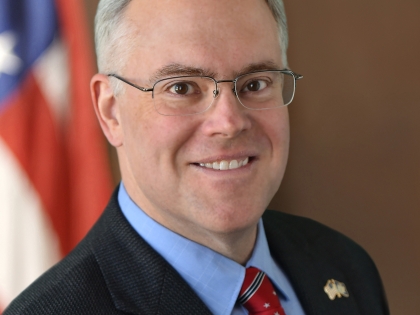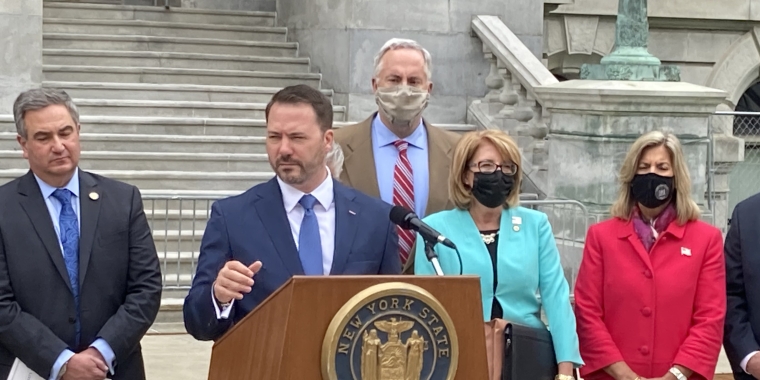
Recent storms require a rethinking of state's Green Agenda
July 31, 2024
-
ISSUE:
- CLCPA
A few weeks ago, the North Country was hammered by severe thunderstorms and tens of thousands of New Yorkers in Warren, Washington, Essex and Hamilton Counties were left without power. Local governments and National Grid worked tirelessly to clear downed lines and trees, but communities across our region were without power for up to a week.
We’re in the middle of a sweltering summer and many residents had no potable water, no refrigeration to preserve food and no air conditioning for an extended period. After one day under these circumstances, thousands were facing severe difficulties and have expressed outrage over a lack of service.
This has made it even more important to have a reliable, easy-to-maintain energy grid and infrastructure. That means rethinking the governor and Democrat leaders’ Climate Leadership and Community Protection Act.
Under it, 70 percent of energy must be renewably sourced by 2030 and there must be net-zero emissions by 2040. That means electric-only power and an end to the use of gas and gas hook-ups in houses and buildings.
If similar events were to happen in the winter, imagine the impact that edict could have during an extended outage. Residents with gas stoves could still provide some heat to their home. At the very least, they would have the option of purchasing a gas stove for their residence. Under the CLCPA, they would no longer have that ability.
I’m not the only public official expressing concerns about the CLCPA. A recent report from state Comptroller Thomas DiNapoli has revealed it’s been a failure. Reading through it highlights what I’ve pointed out as both a legislator and an engineer: the energy goals put forth are simply unrealistic. As I have repeatedly said, this agenda wouldn’t work because it couldn’t work.
The state Public Service Commission has relied on outdated data and wrong calculations in putting forth that goal. The PSC has failed to take into account for new data and laws, such as the recently passed law requiring all new construction below seven stories be electric-only by 2027 and the increase in supply and demand of electric vehicles. It’s failed to account for the costs and timelines for project contracts and most damning, the PSC has failed to provide an honest cost-benefit analysis and estimate of these plans.
The comptroller’s office writes, “Auditors identified other factors that could delay achievement of the Climate Act goals, including increasingly severe weather, renewable electricity demands, a delayed Champlain Hudson Power Express line and potential limitations on the hydroelectric power it is expected to provide, and material availability and supply chain issues.”
The renewably sourced energy being advanced by the PSC and Democrat leaders is simply not capable of meeting the challenges of an emergency like the one our region is currently facing. Instead of lurching ahead with this “green” strategy, which can’t meet consumer demands or be constructed in a reasonable, cost-effective time frame, let’s invest in providing a needed boost to our current energy infrastructure.
Now is the time to ensure our current existing grid and energy sources are modernized and that our current infrastructure can withstand severe weather events. It’s also past time to conduct a full audit and cost-benefit analysis of the CLCPA to reconcile its true costs. At the very least, an investment in our current energy systems ensures a reliable backup to the currently inconsistent renewable sources. In the best case, it ensures more affordable and reliable power for every New Yorker.
Reliability is of paramount importance. Given the volatility of weather, another event like we’re currently experiencing could once again leave communities without access to heat and hot water. We cannot expect our residents to rely on uncertain methods of power generation during unpredictable crises and weather-related emergencies.
Given that, it’s vital to rethink and change the CLCPA’s green plans before proceeding any further. Failure to do so could leave our residents, quite literally, out in the cold.
Share this Article or Press Release
Newsroom
Go to NewsroomStec: Gov should allow DMVs to fully reopen
May 18, 2021

Unemployment insurance fraud persists
May 13, 2021

Stec: ‘Protect those who protect us’
May 11, 2021

